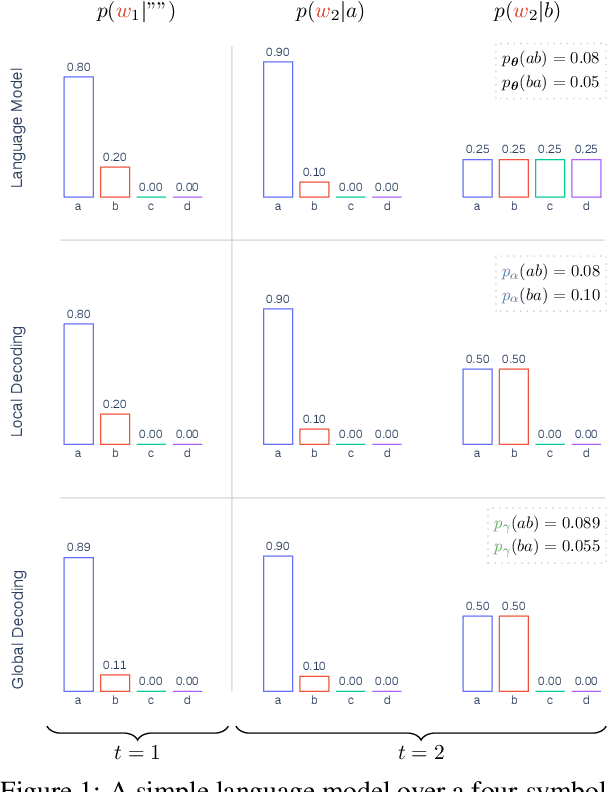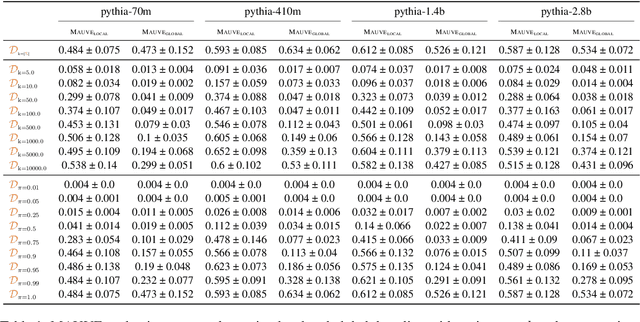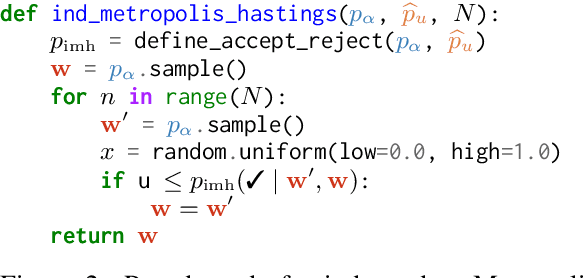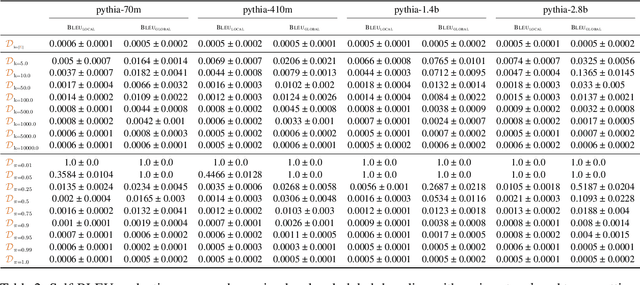Ezhilmathi Krishnasamy
Local and Global Decoding in Text Generation
Oct 14, 2024



Abstract:Text generation, a key component in applications such as dialogue systems, relies on decoding algorithms that sample strings from a language model distribution. Traditional methods, such as top-$k$ and top-$\pi$, apply local normalisation to the model's output distribution, which can distort it. In this paper, we investigate the effect of this distortion by introducing globally-normalised versions of these decoding methods. Additionally, we propose an independent Metropolis-Hastings algorithm to approximate sampling from globally-normalised distributions without explicitly computing them. Our empirical analysis compares the performance of local and global normalisation across two decoding algorithms (top-$k$ and top-$\pi$) with various hyperparameters, using Pythia language models. Results show that, in most configurations, global decoding performs worse than the local decoding version of the same algorithms -- despite preserving the distribution's integrity. Our results suggest that distortion is an important feature of local decoding algorithms.
 Add to Chrome
Add to Chrome Add to Firefox
Add to Firefox Add to Edge
Add to Edge